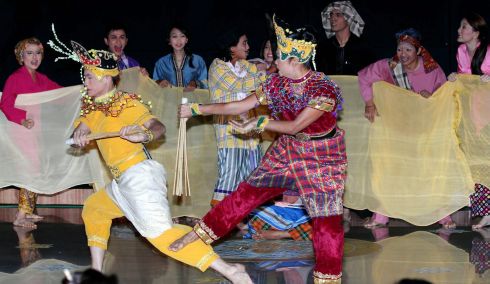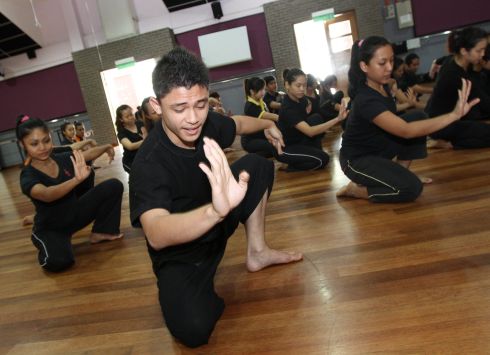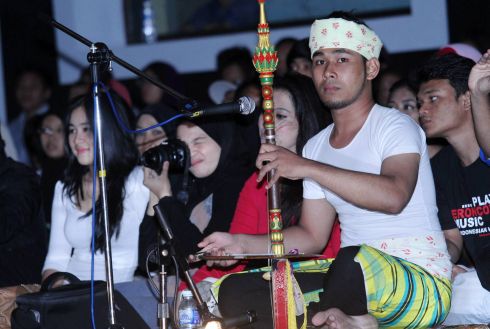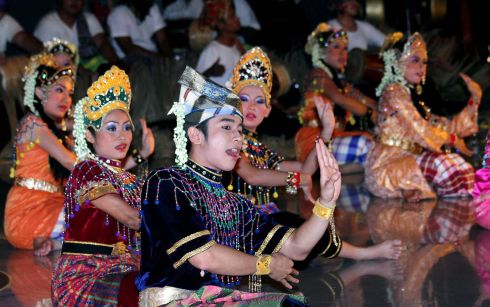Don’t write off mak yong just yet. The traditional dance-drama
may just make a comeback.
By SHARMILA NAIR
alltherage@thestar.com.my
IF there is one thing that Hazlami Harun wants to do at least once, it would be to perform mak yong in his hometown in Kelantan… in public.
Growing up, that dream wasn’t possible as the Kelantan state government had imposed a ban on mak yong in 1991.
The traditional dance-drama, which originates from the Pattani Kingdom (now a provice of Thailand), was banned as the scripts feature an element of fantasy, which was deemed un-Islamic. Interestingly, mak yong was recognised by Unesco as a “Masterpiece of the Oral and Intangible Heritage of Humanity” in 2005.
Hazlami could only watch mak yong practitioners in Kelantan set up small-scale private shows in their villages, and he also performed in several of them.
Then came the news last week that changed that.
Kelantan Mentri Besar Datuk Nik Abdul Aziz Nik Mat announced that the state government might consider lifting the ban on mak yong, provided that the performance doesn’t disregard Islamic values anymore.
“There are many people who are intersted in performing mak yong. It is just too bad if we can’t share this beautiful dance art with others. It would die out otherwise,” said Hazlami, 22.
During our interview, the National Academy of Arts Culture and Heritage (Aswara) student was in the midst of rehearsing for Endeng Tejeli – one of the 12 core stories in mak yong.
It is a story of the power struggle between three siblings after their father, the king of Negeri Kota Lama, dies. The titular character is then introduced as one who helps the victorious sibling capture a princess.
It incorporates dancing, acting, singing and storytelling and Hazlami was excited about his peformance as he was taking on the role of Pak Yong – the lead in Endeng Tejeli.
It is a role traditionally reserved for a female performer.
“I’ve only played Peran (clown) in other mak yong performances and this is the first time I’m playing Pak Yong. It’s challenging but I’m hoping to do my best,” he said.
Hazlami and the rest of the final year Diploma students at Aswara were staging Endeng Tejeli as part of their coursework, something that Josephine Yeong is glad she was part of.
“I didn’t know what mak yong was until I enrolled in this course. It’s a compulsory subject and I’m glad that it’s part of the syllabus because I now love it,” said Josephine, 21.
The Chinese-Sri Lankan student finds mak yong extremely unique and feels that it has “something special” that cannot be found in any other peforming art.
“You have to feel everything in mak yong. Each gesture has a meaning and we dancers have to move slowly and gracefully. Mak yong is simply interesting. I can’t even speak Bahasa Malaysia properly and here I am, trying to peform in a Kelantanese dialect. It’s difficult but definitely worthwhile,” she said.
Another performer, Nur Fasilah Yahya, believes that mak yong is not getting its due recognition, and thinks that many young people are not even aware of its existence.
“I’m not saying that all youths will be interested in watching mak yong the moment they hear about it but I believe that with enough exposure, some will be curious enough to want to check out what the performance is all about,” said 23-year-old Fasilah, who played the role of one of the siblings in Endeng Tejeli.
Proving Fasilah’s theory, Josephine said that a little bit of encouragement had worked in getting her friend to appreciate mak yong. She had invited one of her friends to watch Mak yong and asked her to judge the performance for herself.
“My friend simply loved it! She found it very interesting and wanted to know more about mak yong after that,” added Josephine.
Despite the lack of attention, the young mak yong practitioners are not discouraged. In fact, they are keen to stage more performances, in hopes that eventually more people will hear about mak yong.
“I just hope that mak yong won’t be a thing of the past. We will continue to fight this cause – to bring more exposure to this traditional dance-drama while continuing to enjoy peforming it for all,” said Hazlami.





Tell us what you think!